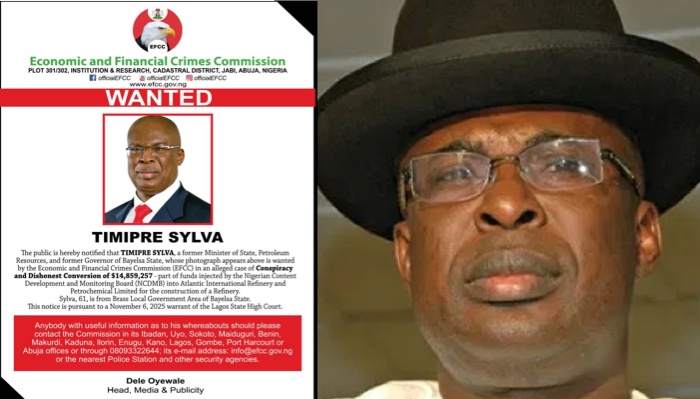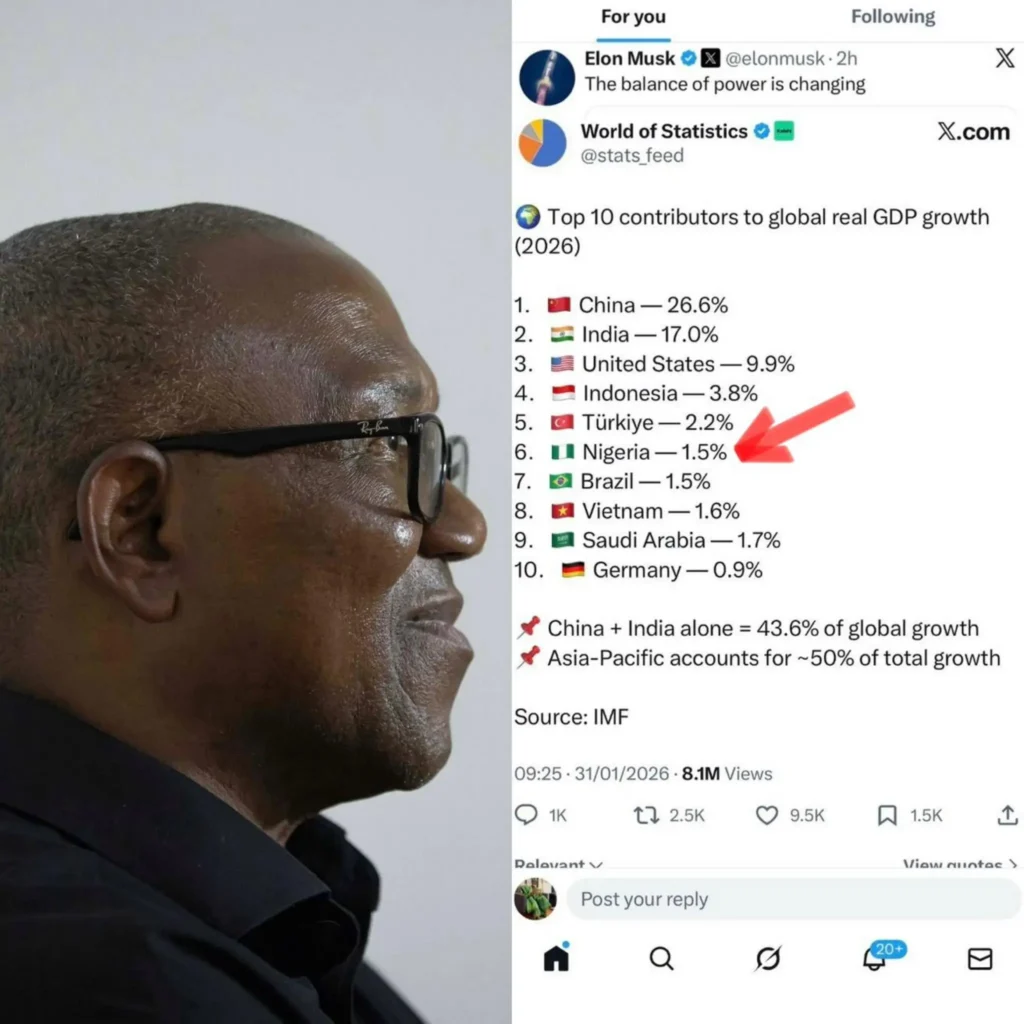Timipre Sylva Dismisses ‘Wanted’ Tag Amid Alleged $14.8 Million Fraud Investigation

Former Bayelsa State Governor, Timipre Sylva has rejected the “wanted” designation issued against him by the Economic and Financial Crimes Commission (EFCC) over allegations of a $14.8 million fraud, stating that he is currently receiving treatment for a life-threatening medical condition.
Sylva insists that he is not evading investigation and seeks a mutually agreeable date to appear before authorities once his health permits.
The EFCC had previously declared Sylva wanted following a Federal High Court order in Lagos, which approved a warrant for his arrest over alleged “conspiracy and dishonest conversion” of funds injected by the Nigerian Content Development and Monitoring Board (NCDMB) into Atlantic International Refinery and Petrochemical Limited.
The commission urged anyone with information on his whereabouts to contact its zonal offices.
In a letter addressed to the EFCC, Sylva described the “wanted” notice as surprising and unwarranted, emphasizing that he has always complied with lawful invitations from authorities.
He recalled that after a December 2024 EFCC invitation regarding the same matter, he provided explanations and was granted administrative bail on his own recognizance. Sylva stressed that no subsequent communication or invitation was issued before the public declaration labeling him as wanted.
Sylva further stated that only the living may properly respond to allegations and requested that the commission allow him to appear physically and formally once medically cleared.
He maintained that he has never jumped bail and that his health currently prevents immediate appearance.
The alleged fraud relates to substantial funds meant for the Atlantic International Refinery project, a modular refinery initiative that has reportedly yet to materialize. Critics have questioned the management and oversight of the funds, prompting intensified scrutiny of public investments under past administrations.
Supporters of Sylva have described the EFCC’s action as politically motivated, warning against selective targeting and potential persecution.
The case highlights ongoing efforts by Nigerian authorities to hold former public officials accountable for alleged financial mismanagement, while also raising questions about due process, political influence, and the integrity of anti-corruption enforcement.
Observers note that the handling of the case, including verification of Sylva’s medical condition and scheduling of his appearance, will be closely watched for its implications on governance, accountability, and public trust in Nigeria’s judicial institutions.









